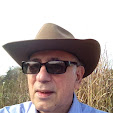Three Teds are a
rare Triumvirate-- three Columbia Professors whose global humanitarian visions and teachings have had an exponential influence on myriads of students:
their disciples, Columbia and other University students, graduates, families, friends, and associates. They are
Ted de Bary, Ted Tayler and Ted Reff.
On July 21, 2014, I met with Professor Ted de Bary (1919-2017)
of East
Asian Studies, in his office at 500D Kent Hall.
He autographed a copy of his latest and last book, The Great Civilized Conversation: Education for a World Community
(Columbia University Press, New York City, 2013)
Fifty years plus after studying
East Asian Humanities at the feet of
Ted de Bary and his colleague
Professor Ainslee Embree, I have come to realize the
profound and enduring influence
of their year-long teaching in the growth and understanding of my own spiritual, mental and physical well-being, and, indeed, as well as others.
In sum, their message is that the westerm core
should be expanded to encompass readings from Hinduism, Buddhism, Shintoism, Islam, Arab, African and Native American religions.
There is now a
new definition for the 'Renaissance man' --once pictured as a 'spin-off ' of the English gentlemen whose oak-paneled library shelves were filled with the
classic volumes of the great works of western civilization. The new
multi-culturally educated world citizen is someone whose education knows
no boundaries. They have, by choice, freed themselves from the limiting
fetters of cultural influences perceived through the
prism of Greco-Roman and Judaeo-Christian values.
Learning for oneself is indeed proudly holding up the banner with 195 Flags of the world declaring, "I ADVOCATE TOLERANCE OF THE OTHER THROUGH LEARNING ABOUT THE OTHER."
Columbia University has lived up to the vision of these two professors. The
Global Core Requirement does just that: it "asks students to engage directly with the variety of civilizations and the diversity of traditions that, along with the West, have formed the world and continues to interact in it today."
On the
ides of March of 2019, I paid tribute to my 17th Century English Prose and Poetry
Professor Ted Tayler, by attending a memorial tribute held at Low Rotunda. He was Columbia's Milton scholar and I was privileged to spend two years with this brilliant man who inspired me to write my master's thesis on
John Milton's Samson Agonistes. (
Click here for the two earlier articles).
Ted Tayler (1931-2017)
Professor
Ted Tayler,
Lionel Trilling Professor of the Humanities, was born in Berlin, Germany in 1931 and died April 23, 2017. He was also a Shakespeare scholar and it is only appropriate that he passed away on the very same day as the Bard of Avon---only 401 years later.
I am indebted to David Lehman CC'70 for his inspiring essay, in essence a dual biograhy---which explores in depth the uncertainties and ambiguities of life--illuminated by the brilliant radiance of Ted's mind---itself obviously
in-spired by a higher order of things. ( To read David's essay:
Ted Tayler: The Good Man, The Good Poem, The Great Professor, click here)
Ted Reff (1930- )
Third on my list is
Ted Reff of the
Department of Art History and Archaeology, specializing in the years 1840-1940. I was privileged to attend an all day colloquium in Schermerhorn Hall dedicated to this living legend who has written "
extensively on the principal movements of that period: Realism, Impressionism, Post-Impressionism, Fauvism, Cubism and Surrealism; and above all the artists Manet, Degas, Cezanne, Matisse, Picasso and Duchamp."
His scholarship was
global and multicultural in scope; he focused not only on the artist's social/cultural milieu and personality, as it influenced his art, but also "
earlier or exotic art on which he drew."
His former students came from near and far to honor their Professor. Over the course of six hours, 13 of his students each spent about 30 minutes exploring with video slides such diverse subjects as:
1. "To imitate the Chinese...." Henri Matisse and Far Eastern Art
2. An Amateur in Africa: Inanke Cave Art as a Celebration of Life
3. Why So Sad? The Changing Image of Pierrot, 1684-1870
For a
'visual taste' of some of the projected slides Click here for an earlier article.
Finally, I offer kudos to each of the
many many thousands of disciples of the the Three Teds who continue to share the living legacy of these three towering Teds wherever
YOU may be across the globe and whatever endeavor
YOU are engaged in.
...and especially
Professors Rachel Chung and
Joanne Covello who, nearly three years after the passing of Ted de Bary, are continuing to offer and teach his signature course
Nobility and Civility.
The overriding message of the readings in this course
starting with Confucius, Mencius, Xunzi and and continuing through Laozi, Cicero, Plutarch, Ramayana, Bhagavad Gita, Dhammapada to the middle ages-- a time span of about 2,000 years-- is that
peace of mind,
harmony and stability is attainable in all societal and political groupings-for all times. And, though, our times are reflective of prior ages and civilizations with a remarkable dystopia---an era marked by global opioid deaths, fatal pandemic plagues, continuing wars and upheavals and toxic political gridlock--we have the choice to come together in our families and nation by spurring a movement of individual self development that tolerates and embraces the other.
And how is that achieved? Every level of society will cooperate in
worshipping, respecting, paying homage, internalizing the love embedded in values passed down from one generation's enlightened leaders to the next and emulating community strengthening actions.





